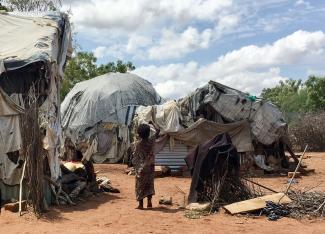Our view
In search of humane solutions

When a country is strife-torn like Syria or governed with brutal force as is the case in Eritrea or Myanmar today, it is absurd to assume that people leave voluntarily. Where livelihoods are destroyed by the climate crisis, young people do not see a future for themselves or entire societies depend on migrants’ remittances, the choices are not entirely voluntary either. Most people concerned would probably prefer to stay where they grew up – but they do not think that would be wise.
For these reasons, many experts doubt it makes much sense to distinguish forced migration from the voluntary kind. Nonetheless, the difference is legally relevant. Parties to the 1952 Refugee Convention have an obligation to accept refugees, but remain free to take in migrants as they please. Whether borders are crossed, matters very much. Internally displaced persons typically enjoy less support and protection than international refugees.
Western governments, however, have been shirking their duty to protect refugees, thus undermining international law. The currently most obvious case concerns the Polish-Belarusian border, which is the EU’s external frontier. The Belarusian regime has brought Middle Eastern refugees there, but the Polish government refuses to allow them into its country and will not check whether they are legally entitled to get asylum. Security forces are preventing the refugees from crossing the border, and humanitarian agencies do not have access to the area.
The Mediterranean scenario has been similarly disturbing for quite some time, with border agencies using force to push back boats full of migrants from Africa. The situation in refugee camps on Greek and Italian islands, moreover, is often desperate, with people faring far worse than European ideas of human dignity allow.
It is a scandal that the EU is breaching human rights and asylum laws. For many years, the EU has failed to draft that humane kind of policy that would be appropriate. Things are similarly awful in other Western countries, such as the USA or Australia for example. The full truth is that matters also tend to be quite bad in many poorer countries where the majority of international refugees live.
It is a huge challenge to drafting better policies regarding migration and flight. Prosperous nations must stop shying away from it. It is not a sustainable solution to seal themselves off with the use of force. The big irony, moreover, is that labour-market experts agree that the same nations urgently need immigrants because their populations are ageing and, in some cases, even shrinking. The demand for skilled labour increasingly exceeds supply – and that has harmful impacts on the care sector as well as small-scale industries.
Germany, for example, needs thousands of additional workers in hospitals and old-age care. The new Federal Government seems to want to tackle the challenge. It announces that it will also promote migration from non-EU countries.
Sabine Balk is a member of the editorial team of D+C Development and Cooperation / E+Z Entwicklung und Zusammenarbeit.
euz.editor@dandc.eu












